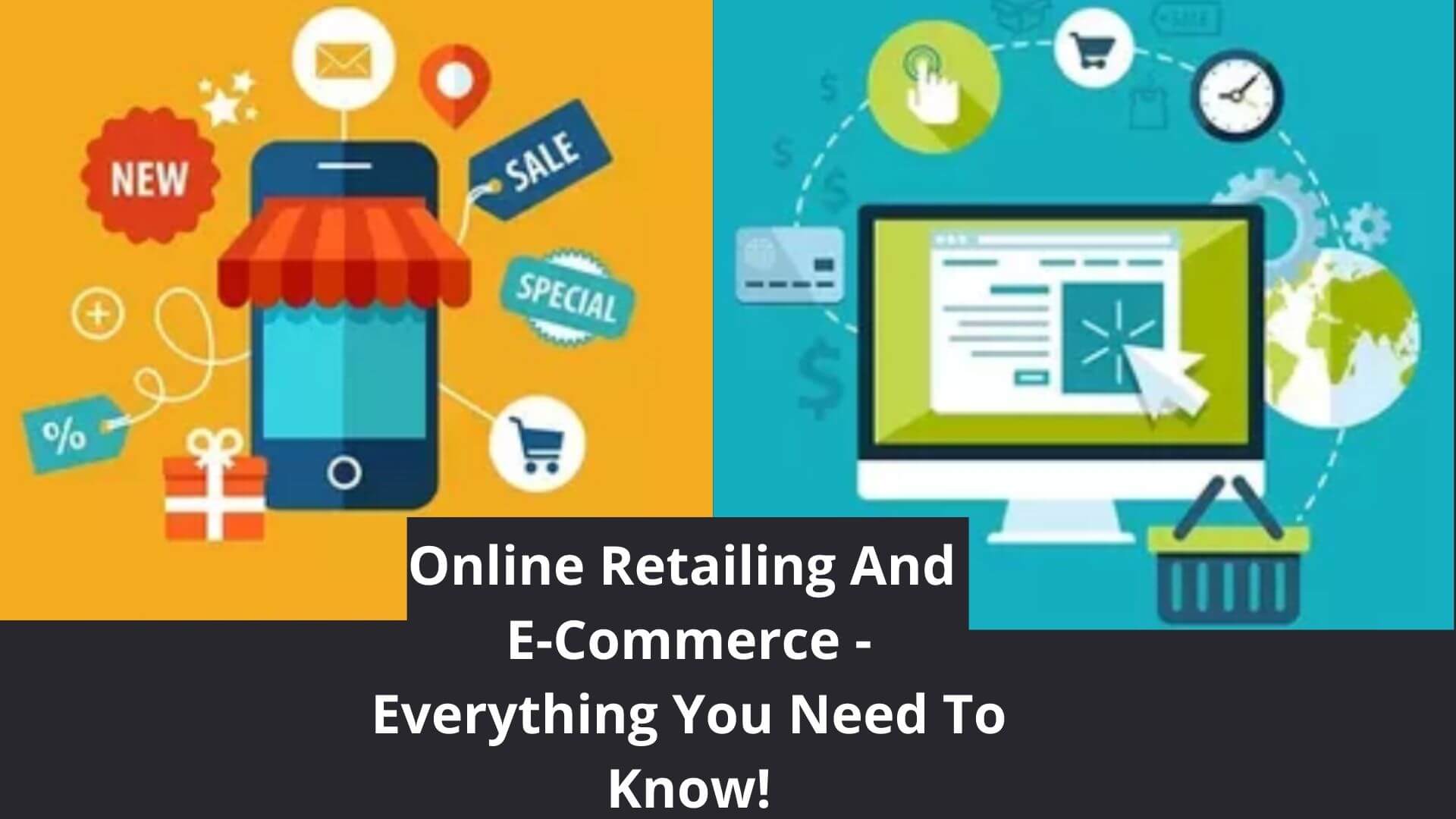In the year 2022, the terms online retailing and e-commerce are some of the most popular channels of business. These are terms that have entered the common man’s lingo and are very often used in conversations. Often online retailing is used alternatively with e-commerce. However, eCommerce is a bit different from online retail outlets.
What Is Online Retailing And E-commerce?
Online retailing has a clause of exclusivity for product sales. In other words, online retailing mimics a physical storefront in just selling products from the business owner.

On the other hand, e-commerce platforms are broader selling platforms that support third-party sellers who can offer a wide range of products. In this way, eCommerce platforms are not limited to only selling products of the company but marketing for third-party companies that want to enter the sector through a selling medium.
The basic difference between E-commerce and Online retail
Usually, online retail stores only have products from a single brand with limited product inventory. Most online retail stores are extensions of physical retail stores. Ecommerce platforms, on the other hand, seldom have physical stores and work with third-party store partners. However, e-commerce platforms offer a wide range of products and more choices. Ecommerce platforms sometimes also offer services to people.
Comparing Ecommerce and Online retail
The benefits of e-commerce platforms and online retailing often overlap and create a fuzzy line of difference. However, on close observation, you will notice the differences between the two ventures. Usually, eCommerce platforms allow sellers to list their products and services on the platform and promote them. Online retailing only takes the manufacturer’s products into consideration and does not sell other products.
Small-scale sellers who have limited budgets and are desperate for a headstart into the online business sector prefer e-commerce platforms. The preference for Ecommerce platforms is because of the fact that the seller has to only create a storefront and not a website from scratch. Online retailing ventures take more time and resources to build than small-scale sellers often lack. However, once there is a steady stream of revenue and the seller is able to create a brand presence, he may decide to venture into exclusive online retailing.
Ecommerce platforms provide a set of preprogrammed tools that help in the marketing and sales of products. The creation of these tools on their own would have taken a lot of skill and resources. The e-commerce platform also provides customer support and marketing tips to third-party sellers so that they enhance business profits. The eCommerce platform demands a minimal fee or commission on the use of the platform. The Ecommerce platforms also claim commissions from the volume of sales sellers generate via the platform. This creates profits for the e-commerce platform. The e-commerce platform is a mutually beneficial storefront that is based on a symbiotic business model.
However, some production companies may find the e-commerce model of business less profitable. The Ecommerce platform gives less amount of control to sellers on the amount and percentage of revenue generated. Therefore, online retailing stores have become highly popular too. The creation of an online retail store allows the seller to create its own brand identity with ease. However, the amount of marketing, financial and skill resource invested by the seller in this model is higher than that of e-commerce stores.
When it boils down to profitability, joining an e-commerce platform gives a clear edge in terms of headstart into the business. The e-commerce seller starts off strong despite having limited resources. The footfall to eCommerce stores is higher, and this helps sellers in increasing their reach and customer base. The e-commerce platform helps sellers in marketing to niche markets and build strong marketing strategies. The channels of sales and marketing expand when a seller joins an e-commerce platform.
Conclusion
On the basis of bottom-line figures, the scale of the business, and resource availability, the e-commerce platform is the clear winner above online retail sites. By collaborating with eCommerce platforms, you can extend better services to your existing and approaching customers.
